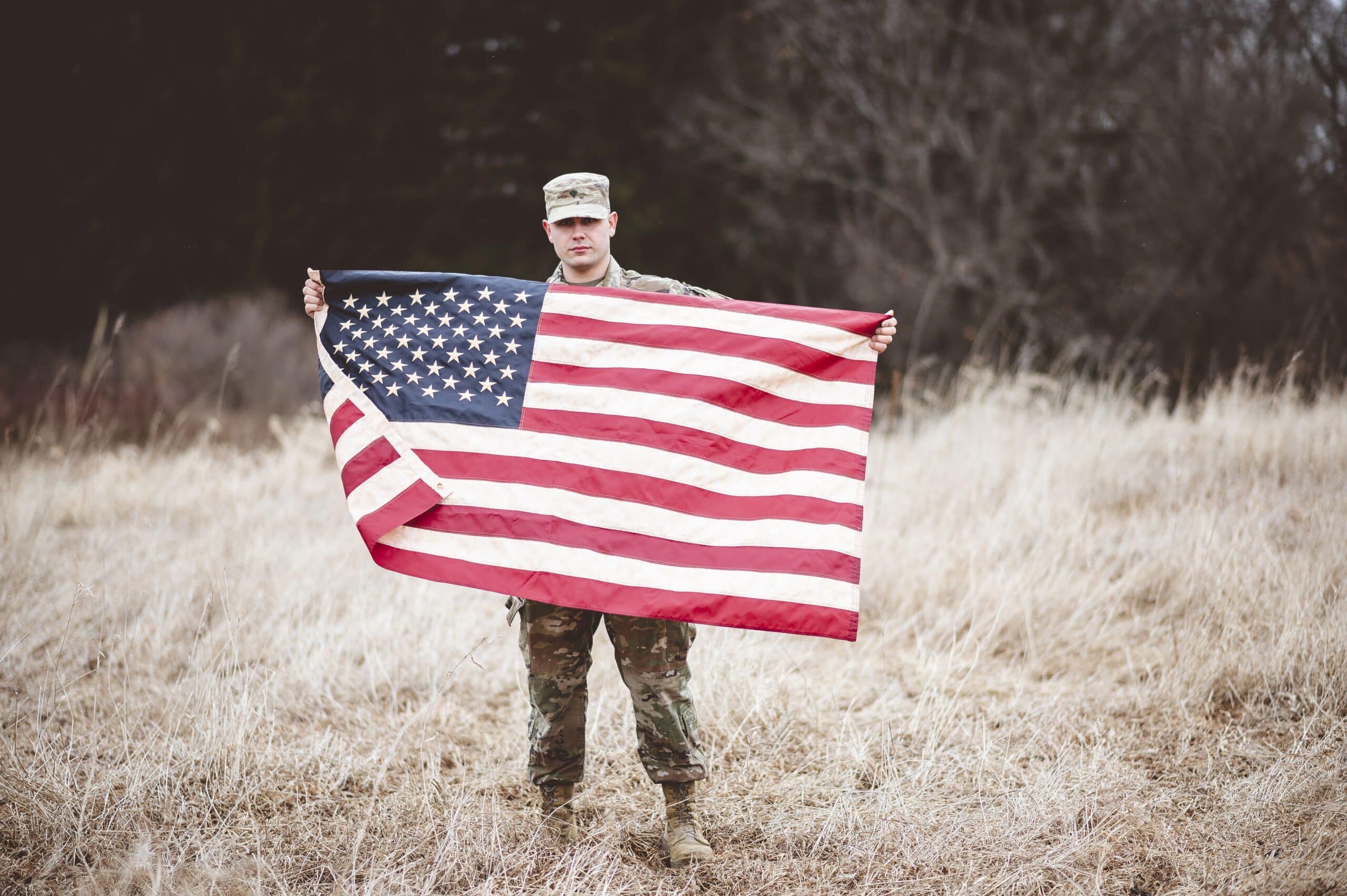PTSD Symptoms in Veterans
- Updated:

Post-traumatic stress disorder (PTSD) is a prevalent mental health condition that significantly affects many veterans who have returned from combat. Studies from the U.S. Department of Veterans Affairs reveal that about 11% to 20% of veterans who served in Operations Iraqi Freedom and Enduring Freedom experience PTSD annually. This alarming rate highlights the critical need for effective recognition and support mechanisms to address the complex ways in which PTSD impacts veterans’ lives.
PTSD in veterans can manifest through a range of symptoms that disrupt their ability to function normally in daily activities. These symptoms include intrusive memories of traumatic events, which may manifest as recurrent distressing memories, flashbacks, or nightmares. Veterans may also exhibit avoidance behaviors, steering clear of places, people, or activities that remind them of the trauma, which often leads to social isolation. Additionally, negative alterations in cognition and mood are common, where veterans might experience persistent negative thoughts about themselves or others, feelings of hopelessness, and difficulty experiencing positive emotions. Moreover, heightened states of arousal are typical, characterized by irritability, hyper-vigilance, and an exaggerated startle response.
Understanding and addressing these symptoms early is essential in helping veterans manage PTSD. At Acera Health, we specialize in providing tailored therapeutic interventions that address not only the psychological effects of PTSD but also the associated conditions such as anxiety and depression. By offering a supportive environment and access to comprehensive care, we aim to improve the overall well-being and quality of life of veterans suffering from this challenging condition.
Identifying PTSD in Veterans
Post-traumatic stress disorder (PTSD) in veterans is a complex and multifaceted condition that can emerge shortly after experiencing trauma or surface years later. This delay in the onset of symptoms can complicate diagnosis and treatment, making it essential to understand the breadth and variability of symptoms associated with PTSD. The symptoms of PTSD are generally grouped into four main categories, each affecting veterans in profoundly different ways and requiring specific approaches for management and treatment.
Intrusive Memories
One of the most distressing aspects of PTSD for veterans is the presence of intrusive memories. Veterans may experience recurrent, vivid memories of their experiences in combat. These memories can abruptly surface as flashbacks or nightmares, making the veteran feel as though they are reliving the traumatic event. Such experiences often trigger intense physical and emotional reactions, such as panic attacks or uncontrollable shaking, and can occur in response to specific triggers or even spontaneously.
Avoidance
Many veterans with PTSD instinctively avoid reminders of their trauma. This avoidance behavior can be wide-ranging, including steering clear of specific locations, shying away from social situations, or even avoiding television programs depicting war or conflict. Such avoidance extends to a reluctance or refusal to discuss the traumatic event, which can significantly hinder social interactions and personal relationships. The isolation that often results from this avoidance can exacerbate other symptoms of PTSD, such as depression and anxiety.
Negative Changes in Thinking and Mood
PTSD can fundamentally alter a veteran’s feelings about themselves and the world around them. This category includes persistent negative thoughts about oneself or others, a distorted sense of blame, feelings of hopelessness about the future, and difficulty finding pleasure in previously enjoyed activities. Veterans may also feel detached from friends and family and find it challenging to maintain close relationships. This pervasive sense of hopelessness is a hallmark of veteran depression, deeply affecting their emotional well-being and daily functioning.
Alterations in Physical and Emotional Reactions
Known as arousal symptoms, these include an exaggerated startle response, persistent feelings of tension or edginess, and difficulty sleeping. Veterans might show irritability, engage in aggressive or self-destructive behavior, and have trouble concentrating. These symptoms, often linked to veteran anxiety, can make daily stress management incredibly challenging. Such states are particularly troubling as they can lead to difficulties in managing daily tasks and maintaining employment. They can increase the risk of developing other conditions, such as substance use disorders.
Understanding these categories and their manifestations in daily life is crucial for the effective treatment and support of veterans with PTSD. At Acera Health, our approach includes a comprehensive evaluation to identify which symptoms are most prominent and disruptive for each veteran, followed by a tailored treatment plan that addresses these specific challenges. By fostering a deeper understanding of PTSD symptoms and their impacts, we can better support our veterans in their recovery journey, ensuring they receive the compassionate and effective care they deserve.
Strategies for Supporting Veterans with PTSD
Supporting a veteran with PTSD is a delicate process that requires empathy, patience, and a deep understanding of the condition. Here are some effective strategies that can aid in the recovery process and ensure that veterans receive the support they need to manage their symptoms and work toward healing:
Active Listening
One of the most important ways to support veterans with PTSD is through active listening. Offering a supportive ear and acknowledging their feelings without judgment can significantly impact their healing journey. Active listening involves more than just hearing words; it requires full engagement and a genuine effort to understand the veteran’s experiences and emotions. This approach helps veterans feel valued and understood, which can be incredibly empowering for someone struggling with intrusive memories and emotional numbness.
Encouraging Treatment
Seeking professional help is crucial for effectively managing PTSD. Veterans should be encouraged to seek care from specialized facilities that offer therapy tailored to their unique experiences and symptoms. At Acera Health, we provide comprehensive treatment programs that address both the psychological and physical aspects of PTSD. These programs are designed to help veterans develop coping strategies, work through traumatic memories, and gradually reduce their symptoms through evidence-based therapies such as cognitive-behavioral therapy (CBT), eye movement desensitization and reprocessing (EMDR), and medication management. One of the most impactful ways how to help a veteran with PTSD is by encouraging the continuation of treatment.
Educating Yourself and Others
Increasing awareness and knowledge about PTSD can dramatically improve the support network for veterans. Understanding what PTSD is, how it affects individuals, and the common triggers and challenges associated with it can prepare friends, family members, and community members to create a more supportive environment. Educational efforts can also reduce the stigma surrounding mental health challenges, making it easier for veterans to speak openly about their struggles and seek help.
Patience and Understanding
It’s important to recognize that recovery from PTSD does not follow a linear path and varies significantly from one veteran to another. Displaying patience and understanding throughout the recovery process is vital. Veterans may have good days where they seem like their old selves and bad days where they struggle to cope with normal activities. Consistent support through these ups and downs is crucial. It’s important to reassure veterans that their experiences are valid and that there is no set timeline for recovery.
Building a Supportive Community
Creating a supportive community that can offer practical help and social connection can also play a crucial role in a veteran’s recovery from PTSD. This might involve coordinating with local veterans’ groups, organizing community activities that are inclusive and understanding of PTSD challenges, and fostering connections with others who share similar experiences. This sense of community can help veterans feel less isolated and more supported in their journey toward recovery.
By implementing these strategies, we can create a nurturing environment that acknowledges the challenges veterans face and actively contributes to their path to recovery. At Acera Health, we are committed to supporting our veterans every step of the way, providing the tools and resources necessary for managing PTSD with the dignity and respect they deserve.
Veteran PTSD Treatment at Acera Health
At Acera Health, we understand the severe impact of PTSD on veterans and are dedicated to providing comprehensive treatment tailored to the unique challenges faced by those who have served in the military. Our approach integrates evidence-based therapies such as Cognitive Behavioral Therapy (CBT) and Eye Movement Desensitization and Reprocessing (EMDR) alongside medication management and holistic practices like yoga and meditation. These methods collectively address the psychological, emotional, and physical aspects of PTSD, ensuring a holistic path to recovery. Our commitment extends beyond immediate care; we provide ongoing support and outpatient services to help veterans integrate the coping strategies they learn into daily life. Recognizing that recovery is a continuous journey, Acera Health is dedicated to supporting our veterans every step, helping them regain control and move towards a healthier, more fulfilling future.
Clinically Reviewed by:

Melody Stone, LMFT
Melody Stone is a Licensed Marriage and Family Therapist who has over 17 years of experience in the field of behavioral health. She works as the Chief Clincal Officer (CCO) to Acera Health, where she is a strong leader focused on sustainable success.
Related Resources

How to Help a Veteran with PTSD
How to Help a Veteran with PTSD Reviewed by: Melody Stone Helping a veteran with PTSD is essential as they navigate life after deployment. Statistics

Understanding Suicide & Veterans: Why Do Veterans Commit Suicide?
Understanding Suicide & Veterans Reviewed by: Melody Stone In addressing the complexities of suicide among veterans, it’s essential to recognize the interplay of various factors.

Veteran Program
Veteran Mental Health Treatment in Orange County The Path to Sound Mind, Body and Soul Orange County Luxury Residential Mental Health Facilities Call Now Verify




